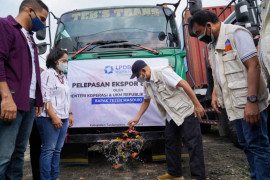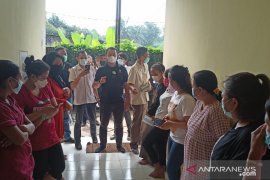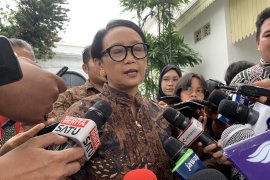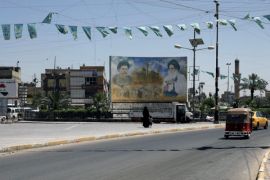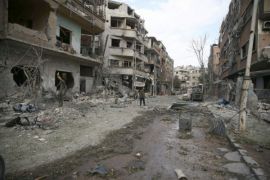The fighting erupted when security forces used water cannon and fired shots in the air to prevent around 3,000 protesters from reaching the city`s main square, the witnesses said.
Rallies in the square have been growing since April 9, with demonstrators protesting against any extension of the U.S. troop presence in Iraq beyond the end of the year.
"We received 10 wounded people, including some policemen. Their injuries were caused by batons and stones," said a medical source at Mosul hospital, who declined to be named.
The United States is due to withdraw its remaining troops by Dec. 31 as part of a joint security agreement with Iraq, more than eight years after the U.S.-led invasion, but some Iraqis suspect the deadline may be extended.
Two rallies against a U.S. troop extension have been held in Baghdad in recent days by followers of anti-American cleric Moqtada al-Sadr, who has vowed to unleash his Mehdi Army militia unless the Americans leave on schedule.
The top U.S. military officer said last Friday that Iraq had only weeks to decide if it wants to keep U.S. troops beyond the deadline.
Although some concerns remain about Iraqi security forces` capability to halt a weakened but still dangerous Islamist insurgency, Prime Minister Nuri al-Maliki has said foreign troops will no longer be needed after the end of this year.
In Mosul, seen as al Qaeda`s last urban base in Iraq, witnesses said clashes occurred when hundreds of members of the security forces took control of the main square overnight and tried to prevent protesters from reaching it.
"They used water cannon and batons against us. They even shot bullets in the air," said demonstrator Qassim al-Hadeedi.
Iraqis, inspired by rallies elsewhere in the region, have staged protests since February against corruption and a lack of basic services, but most have so far not demanded a complete change of their democratically elected government.
Mosul Governor Atheel al-Nujaifi criticised the use of force by Iraqi police and soldiers.
"As long as they express their opinion in a peaceful way, no one has the right to use violence against them," he said. (*)
Editor: Kunto Wibisono
Copyright © ANTARA 2011

